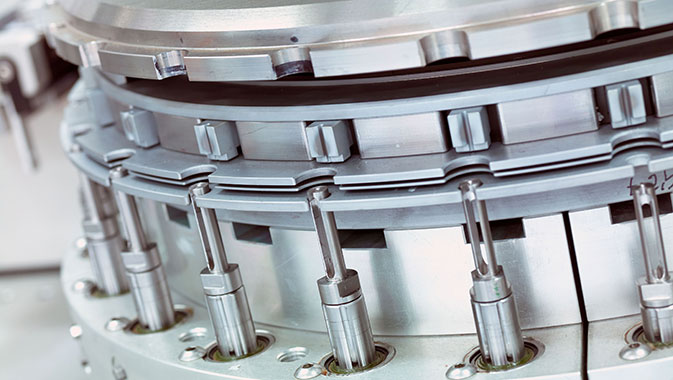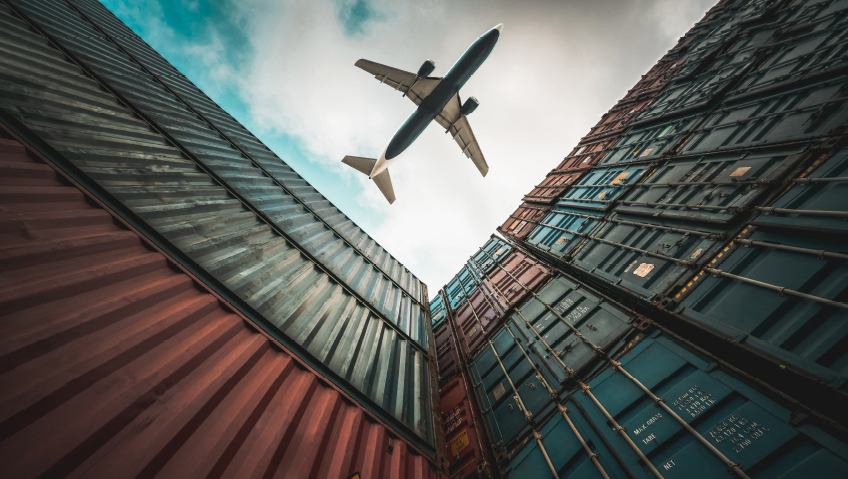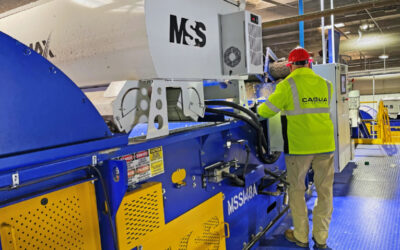Richmond Hill, Ontario-based Hibar Systems Limited is a world leader in the development of automated dispensing systems and precision metering pumps. The company has pioneered innovative new systems ever since it began, and Business in Focus spoke with President and CEO Iain McColl to find out more.
~
Hibar was launched, in the early seventies, by German born Canadian engineer Heinz Barall. In his basement, Heinz developed the prototype of a precision metering pump to dispense electrolytes into batteries. He took it to what was, at the time, one of the world’s largest battery companies that was making the small button cells that run a typical watch.
These require a dose of two microlitres of potassium hydroxide electrolyte to be dispensed into the button cell – quite a feat to achieve consistently and accurately.
“He took it to the battery company thinking that if it was successful, the battery company had multiple lines in their factory, and that would equate to twenty-four to thirty pumps,” explains Iain. “He could see the potential requirements on their battery lines.”
Heinz never got his prototype back. The prototype was put into use and performed flawlessly, and he subsequently got orders for more pumps to satisfy the facilities requirements. Hibar then provided pumps for every site in North America of that particular manufacturer. Within months of that success, the Hibar electrolyte dispensing pump was in demand by most other leading battery manufacturers.
Early in the company’s life, Hibar was exporting to Japan – arguably the epicentre of the battery industry – to supply companies like Panasonic, Sony, Sanyo, Hitachi and Matsushita. Forty years later, the Hibar pump is still used worldwide throughout the battery industry.
Building on its success in the battery industry, Hibar has also developed precision liquid dispensing systems for other markets. “That is one of our niches, but then having our expertise in precision liquid dispensing, we increased our focus on applications in the food, cosmetic and pharmaceutical industries. We do a lot of custom engineered solutions. We very rarely build more than one of a particular design of system.”
Hibar equipment is used by many companies to make an enormous array of products that require high precision liquid dispensing. Chances are very high that any given printer’s ink cartridge was made using a Hibar system. In the pharmaceutical industry, vaccines are put into vials; active drug ingredients are put onto a drug substrate, and liquid medicine is metered into capsules, diagnostic devices or bottles.
“In the cosmetic industry, I think you can imagine the myriad of different small bottles of very expensive liquids that are dispensed,” Iain points out. “Most of that technology comes from us. We have not cornered the market, but certainly are a world leader in precision liquid dispensing.”
Hibar can offer its clients the complete package, and this starts before the sale is even made. The company will take a proposed idea from the laboratory and work with the customer to develop the process required to take the idea to production and then build the needed machinery.
“So, being vertically integrated means that we have everything from the pre-order, conceptualization, mechanical engineering design and electrical engineering design. We have our own integral machine shops where we make the parts for the machines right here in-house. We assemble them; we wire them; we program them, test and commission them – all essentially under one roof.”
One of the biggest challenges that Hibar faces involves international export regulations. Over ninety-seven percent of its revenues are based on exports. Although it does serve the US, it also has markets in the Far East with China alone providing over fifty percent of its business in 2014. “They have a lot of restrictions on importation and currency exchange; it’s very tightly controlled.” The issues mainly arise from the Chinese control of foreign exchange which can make it complex and challenging to do business in China.
Hibar has two offices in China. Its China head office, established in 2003, has just completed a move to a new research and development park in the city of Ningbo, and the team also has a branch office located in the south of the country in Foshan. “Doing things in foreign countries is a challenge and it is the restrictions and highly regulated environment that add to this.”
In North America, if Hibar was to send equipment to a trade show for example, it would be a rather simple task; the equipment is sent in with limited restrictions, demonstrated at the trade show and then sent back. If the equipment is sent into China, on the other hand, it must begin with the process of having the Hibar office in China purchase the product which in most cases cannot easily be sent back. Among other restrictions, it has to be able to register and sell the product.
Iain says that sometimes it is worth it and sometimes not. One of the biggest challenges with operating in China is in the protection of intellectual property. “Because we are a technology company, we get a lot of copycats. Even if we bring something into the market first, it is very, very difficult to control in China. Even with patent protection and all of the legal protections you can put in place, it’s still very difficult to control. China is the knock-off capital of the world!”
Nevertheless, with such a hold on the market and technology second to none, Hibar has seen its share of rewards. In 2014, Hibar was given the Mayor’s Award at the town of Richmond Hill Business Achievement Awards. It was a finalist in the recent Ontario Export Awards for the Consumer Products & Technology award and also in the category of Export Leadership. Very recently, it was announced that the company was named as one of Canada’s Best Managed Companies in 2014 by Deloitte for excellence in business performance. The award will be presented in March.
In the past couple of years, Hibar has seen some steady growth in revenues of fifty to sixty percent per annum. The company is seeking new markets such as India, Australia and South America. “These are new and growing markets. We are also still pursuing China because it has become a consuming nation rather than a producing nation, and we make machines that service their consumer markets for food, cosmetic and pharmaceutical.”
Hibar, although a relatively small company, is serving an international market with multinational companies. It has been expanding steadily over the years and expects to be adding to its 140 employees as it goes forward. Iain affirms that the growth is not haphazard. “It is managed, and we have to do that in such a way that we sustain our quality and focus.”













